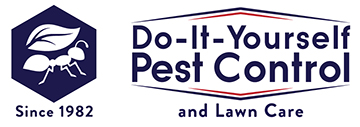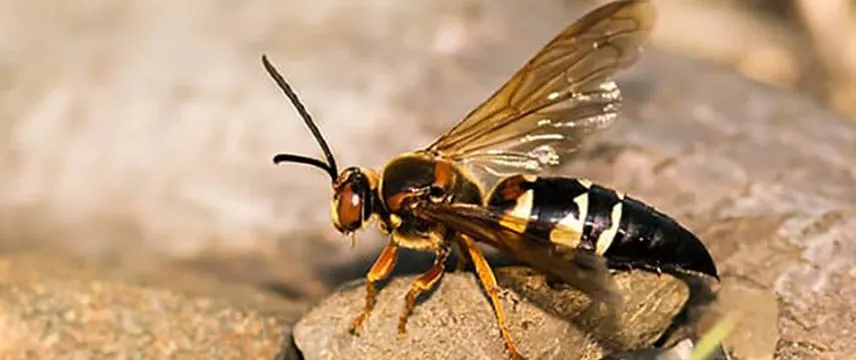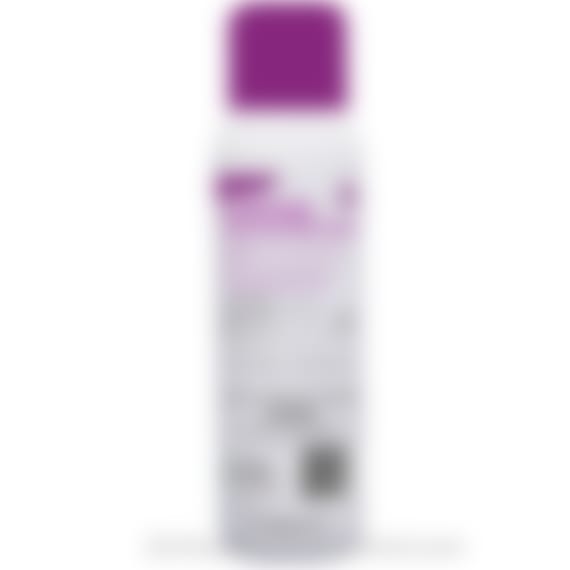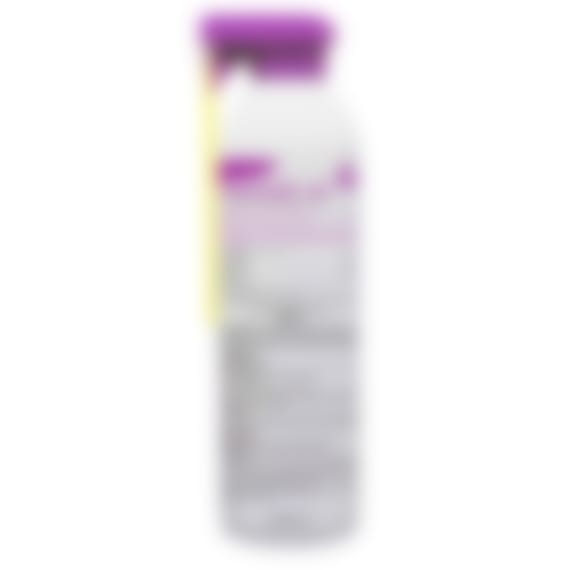
How to Get Rid of Cicada Killer Wasps
If you have an active cicada killer wasp (ground digger wasp) infestation, follow these guidelines to learn how to get rid of cicada killer wasps, and discover the best products for cicada killer wasps treatment.
December 16th, 2023
Cicada Killer Wasps (Sphecius speciosus) are solitary wasps that appear during the summer months. The Cicada Killer Wasp appears in all states east of the Rocky Mountains (related species are found west of the Rocky Mountains).
Cicada Killers are also known as digger wasps. These wasps are large and can be intimidating, but are not aggressive like other wasps such as yellow jackets. They pollinate plants and are considered beneficial to the health of the ecosystem.
The adult Cicada killers feed on flower nectar. They also kill Cicadas to feed their larvae.
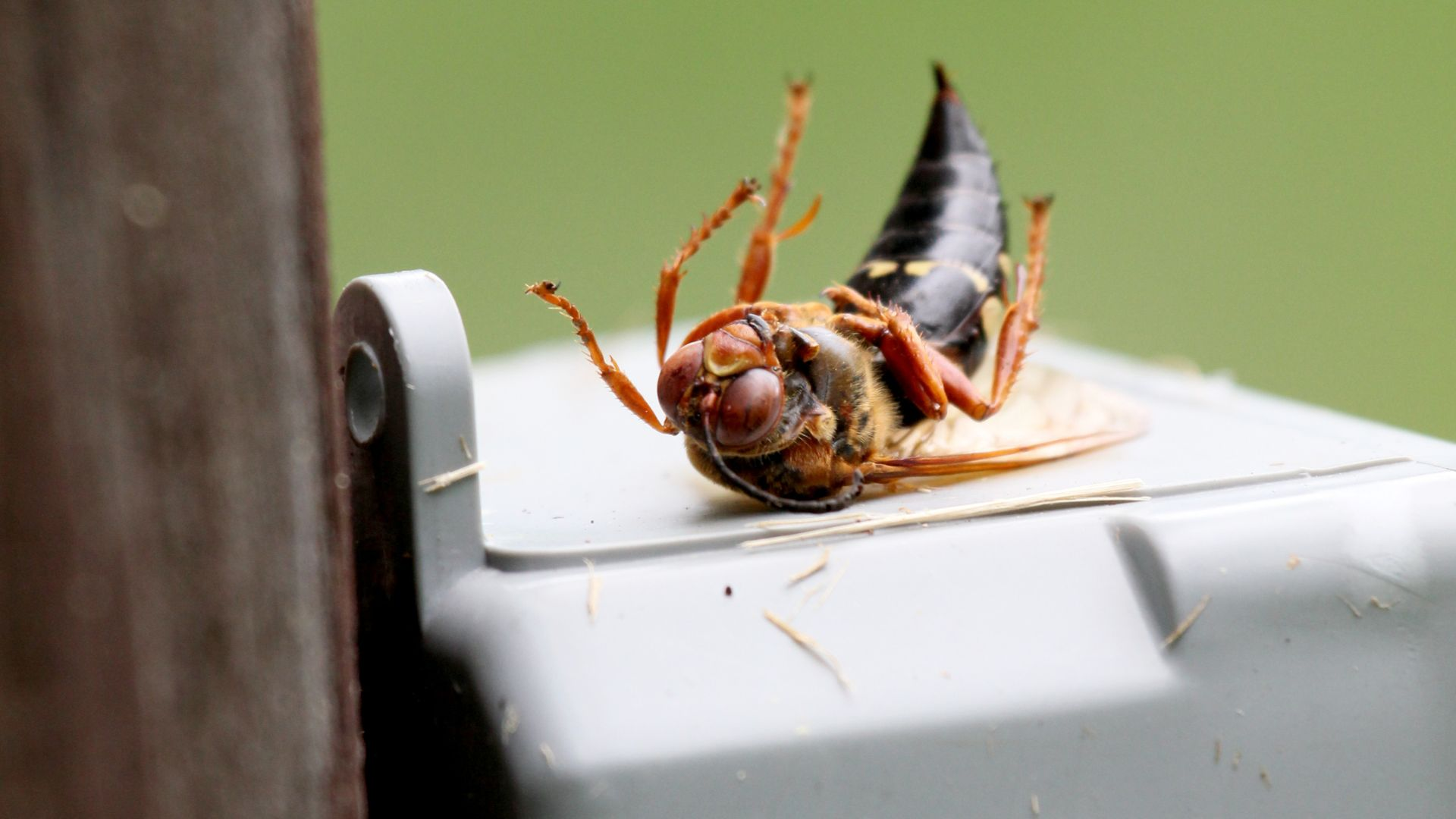
How to Get Rid of Cicada Killers
If only a few Cicada Killer wasps have made their presence known in your home or yard, you can usually get rid of the problem on your own.
If the infestation appears to be larger than that, an exterminator may be considered to get rid of Cicada Killers effectively.
Chemical techniques may damage your lawn and are potentially dangerous if you have pets. It's understandable that you wish to get rid of these pests in a more natural way.
We will provide you with several DIY methods to get rid of Cicada Killers below:
1. Natural Method to Get Rid of Cicada Killer Wasps
To successfully get rid of Cicada Killer Wasps, your first step is to locate their den. Cicada Killers are also known as Ground Digger Wasps because they dig their homes into the ground. Inspect your yard for a coin-sized hole, with a mound of dirt near the entrance.
Once you locate the Cicada Killer holes, mark these spots so you can find them again at nighttime. These wasps leave their nest during the day, so to successfully get rid of cicada killer wasps, you need to apply this treatment at night.
When night falls, boil a pot of water, and grab a glass bowl. Pour the boiling water down any cicada killer holes that you have marked. Cover these holes with a glass bowl so the wasps can not escape.
In the morning, go out and check your traps. If the wasps were not killed by the boiling water, they will be trapped in the bowl and eventually suffocate.
If the wasps are dead, cover over their burrows. If there are still wasps in the area, it is possible that you missed a hole. Search your yard again for any holes and repeat the process if so.
2. How to Get Rid of Cicada Killers with Insecticides
If you notice new holes or a developing nest, you can try applying Tempo Dust to the holes' entrance. When the holes are new, you still have the potential to kill the larvae and adults.
A more permanent and preventative method would be to apply Bifen LP Granules over the whole area and water it. The Bifen LP Granules would not yield immediate results but stop them from returning the following year.
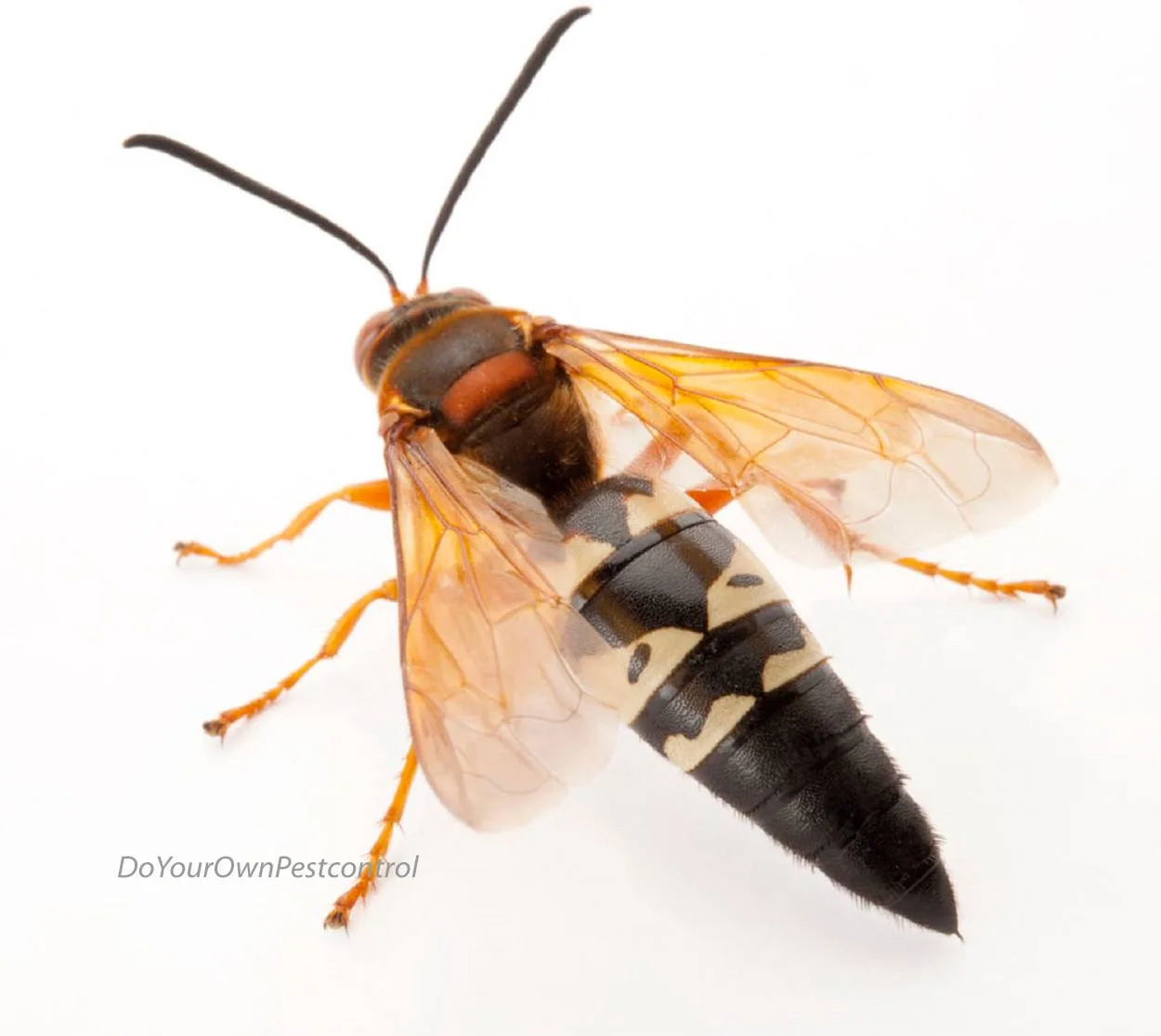
If the nest seems more well-established, we recommend trying an Aerosol spray. When you treat a Cicada Killer nest with an insecticide spray, turn your spray nozzle to a pin stream setting.
Spray a small amount of the insecticide into the entrance of the burrow. Spray these holes thoroughly as Cicada killers can burrows could be up to 5 feet in length.
The pesticide should be applied in the evening when the adult Cicada Killer Wasps are most likely to be resting in their burrow. Proceed with caution and wear long-sleeved protective gear, since Cicada Killers may emerge and attempt to sting you.
Wasp Control Products that We Recommend:
Recommended Insecticide Dust and Traps
Identify
Cicada Killer Wasp Species in the Americas
-
Eastern Cicada Killer (Sphecius speciosus) - Found in Ontario, Canada, the U.S.A. Mexico and parts of Central America.
-
Pacific Cicada Killer Wasps (Sphecius convallis) - Found in the U.S.A. and Mexico.
-
Western Cicada Killer Wasps (Sphecius grandis) - Found in the U.S.A. Mexico and parts of Central America.
-
Caribbean Cicada Killer Wasps (Sphecius hogardii) - Found in Florida and Caribbean countries.
-
South American Cicada Killer Wasps (Sphecius spectabilis) - Found in South America.
Cicada Killer Appearance
Cicada killers can be up to 1.5 inches long; males are a little smaller than females. It has a black abdomen with yellow markings and an orange tint to the wings.
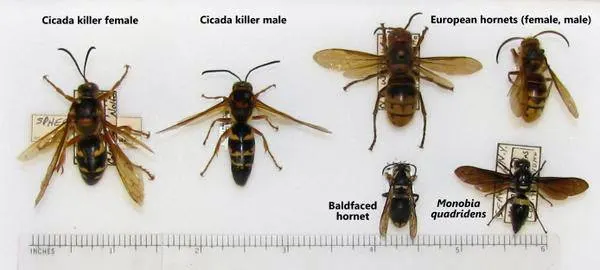
Cicada Killer Wasps are often confused with hornets or European wasps. Cicada killers may look like European hornets or Bald-faced hornets, but the overall color pattern, size, and shape differ.
These huge wasps tend to leave people alone but it can be frustrating to have them flying around your home and garden.
Inspect
Cicada Killer Wasp Diet and Habits
The Cicada Killer Wasps will gravitate toward flowers, feeding on flower nectar. These wasps dig holes or burrows, preferably in soft, sandy, and well-drained soil.
You may commonly find cicada killer activity in golf course sand traps. One of their primary food sources is how these wasps got their name; Cicadas.
They seek out and hunt cicadas for food to raise their young.
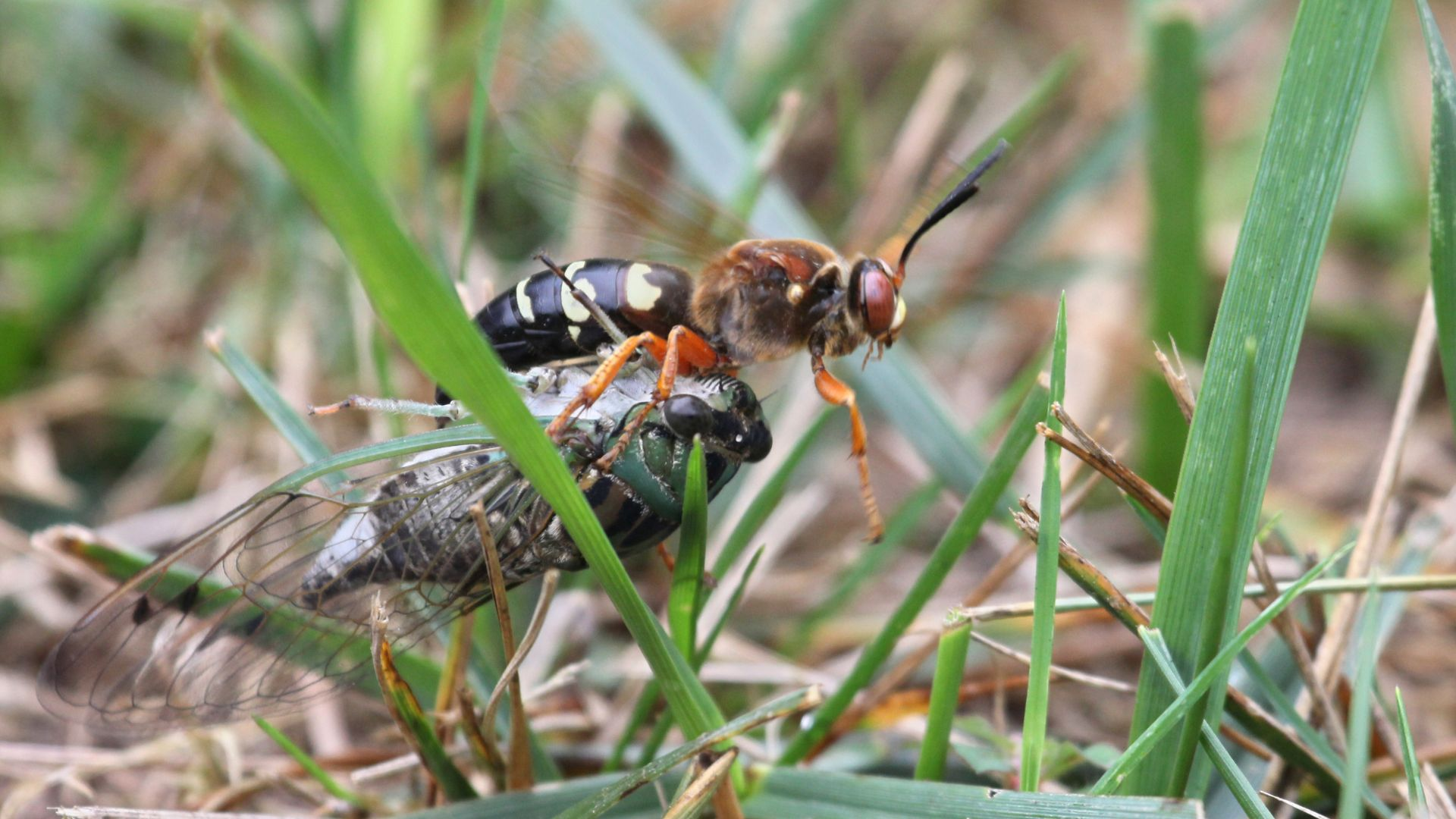
The Female Cicada Killer
-
For a few days to a couple of weeks, the female Cicada Killer will drag the paralyzed cicadas. The larvae will consume the live cicadas.
-
A burrow may have up to 20 cells with 1-2 cicadas and one egg per cell.
-
The egg hatches into larvae to feed on the Cicada.
-
The larvae spin a cocoon afterward and enter a dormancy through the winter(overwinter) and pupate the following spring.
The male Cicada Killers are smaller and will aggressively defend their territory from other intruding males.
They may be found on sloped terrains, flower beds, patio edges, or sidewalks, and in the yard. The Cicada Killer Wasp stings Cicada (locusts) to paralyze them and feed them to the larvae.
Many of the developing larvae may come out as adults the following year, so the numbers increase year by year.
It is important to prevent and stop this cycle to get rid of Cicada Killers. An effective method for this is to use an insecticide granule.
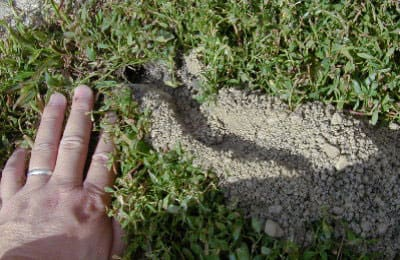
Cicada Killer Wasp Nests
A pile of soil is typically found at the entrance of the burrow made by Cicada Killers. As much as 100 cubic inches of soil is brought to the surface as they make the tunnels/burrows.
A female will dig a burrow that can be up to 10 inches deep and extend another 6 inches horizontally.
The female Cicada Killers hunt for cicadas on the lower limbs of trees and tree trunks. The female will sting it and carry or drag it to the burrow.
Do Cicada Killers Sting?
The female Cicada Killer Wasp is equipped to sting and eject venom into cicadas to feed them to their larvae.
They will only sting humans if caught in clothing, or caught by your bare hands. They are content with simply digging their holes and hunting for cicadas.
Key Takeaway
Adults will be gone in a few weeks. Focus treatment on the soil in and around the burrows to eliminate the larvae.
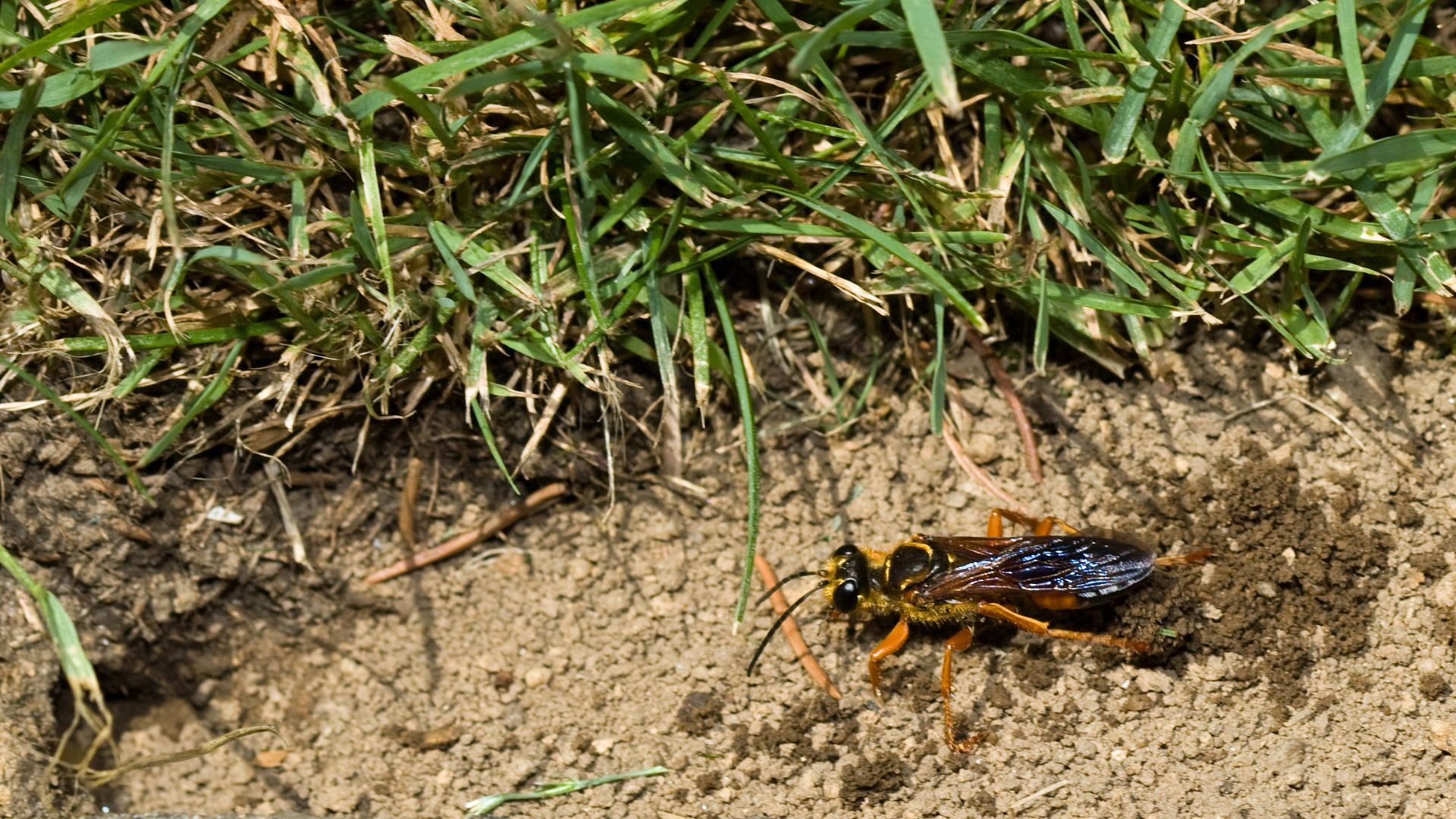
Cicada Killer Prevention
You want to make sure Cicada Killer Wasps don't return once you've effectively eradicated them from your yard. Cicada Killers are likely to have laid eggs before they were killed by insecticides.
If not correctly removed, the eggs will hatch soon, bringing a new generation of Cicada Killers into your home and garden.
Cicada Killer Wasp pheromones may also be left behind, attracting more Cicada Killers to your home. There are effective ways to prevent cicada killers from re-infesting, we have listed a few below:
Mechanical Prevention
Since Cicada Killer Wasps prefer digging to create their nests in bare soil or areas with thin sparse vegetation, maintaining the health and vigor of the turf can be a very important factor in discouraging their nest building.
Watering your lawn with an inch or two of water can also prevent infestations. Keeping your lawn well-nourished will encourage it to grow strong roots that make it tough for Cicada Killers to burrow through.
Insecticidal Prevention
An effective preventative method is to apply Bifen LP Granules over the area where the cicada killer nests are being dug and add water to them.
The Bifen LP Granules do not yield immediate results but by killing the Cicada Killer Wasps larvae, stop them from returning the following year. Any tunnels that form should be treated with a recommended Insecticide right away.
How To Get Rid Of Cicada Killer Wasps
If you have an active cicada killer wasp (ground digger wasp) infestation, follow these guidelines to learn how to get rid of cicada killer wasps, and the best products for cicada killer wasp treatment.
Cicada Killer Wasps (Sphecius speciosus) are solitary wasps and appear during the summer months. The Cicada Killer Wasp appears in all states east of the Rocky Mountains (related species of Sphecius are found west of the Rocky Mountains). Cicada Killers are also known as digger wasps. These wasps are large and can be intimidating, but are not aggressive like other wasps like yellow jackets in the social wasp category. They pollinate plants and are considered beneficial.
The adult Cicada killers feed on flower nectar. Cicada Killer Wasps do not defend their nests like yellow jackets, which are social wasps.
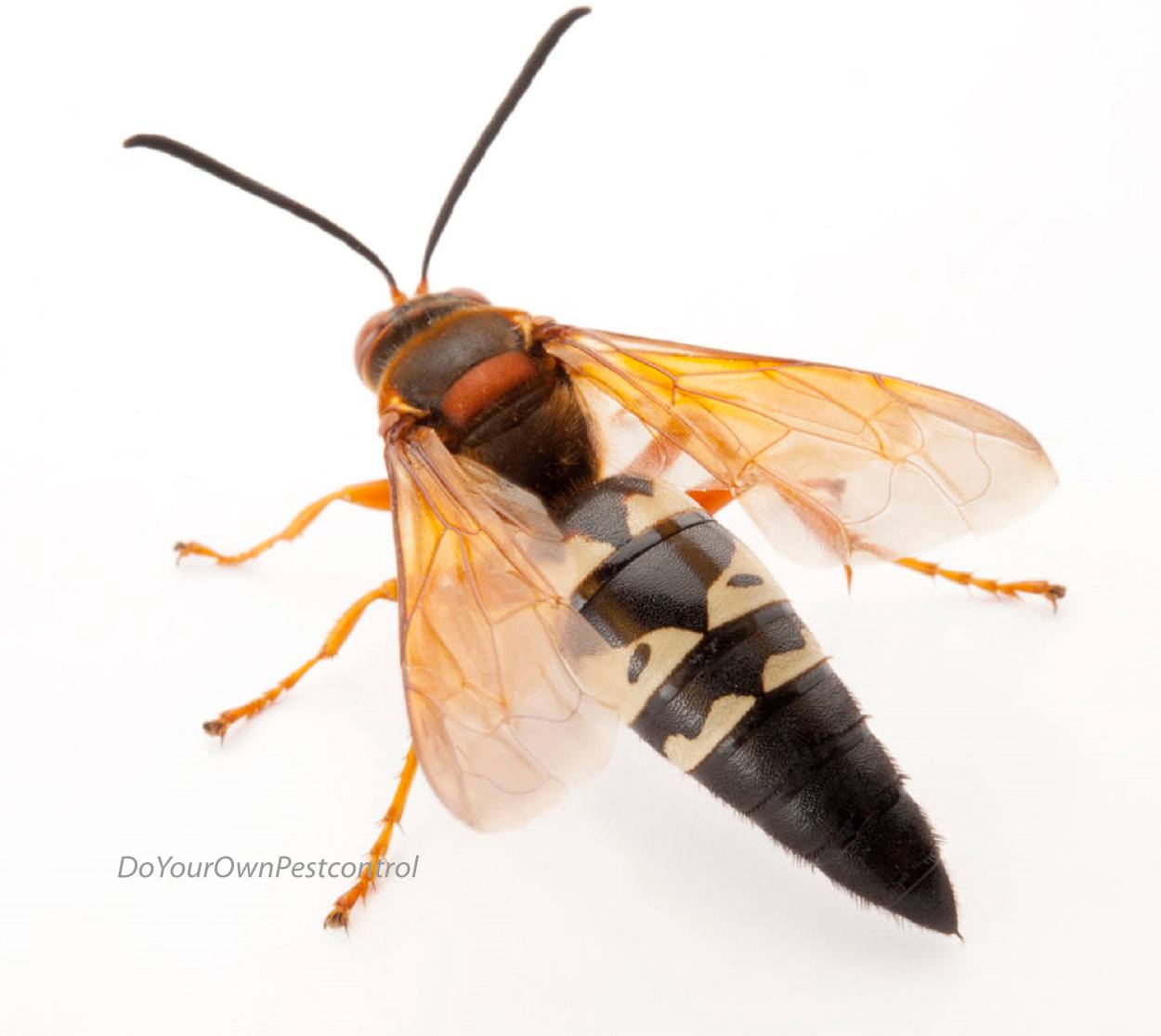
Cicada Killer Species in the Americas
- Sphecius speciosus (Eastern Cicada Killer)-Found in Ontario, Canada, the U.S.A. Mexico and parts of Central America.
- Sphecius convallis (Pacific Cicada Killer) -Found in the U.S.A. and Mexico.
- Sphecius grandis (Western Cicada Killer) - Found in the U.S.A. Mexico and parts of Central America.
- Sphecius hogardii (Caribbean Cicada Killer)- Found in Florida and Caribbean countries.
- Sphecius spectabilis -Found in South America.
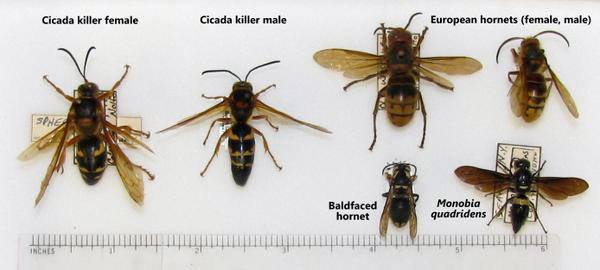
Cicada Killer Appearance
Cicada Killer can be up to 1.5 inches long; males are a little smaller than females. It has a black abdomen with yellow markings and an orange tint to the wings.Cicada Killer Wasps are often confused as hornets or European wasps. Cicada killers may look like European hornets or Bald-faced hornets, but an overall color pattern, size, and shape differ.
Cicada Killer Wasp Diet and Habits
The Cicada Killer Wasps will gravitate towards flowers, feeding on flower nectar. These wasps dig holes or burrows, preferably in soft, sandy, and well-drained soil.They may be found on sloped terrains, flower beds, patio edges or sidewalks, and in the yard. The Cicada Killer Wasp stings Cicada (locusts) to paralyze them and feed them to the larvae.Many of the developing larvae may come out as adults the following year, so the numbers increase year by year.
It is important to prevent and stop this cycle by using an insecticide granule.
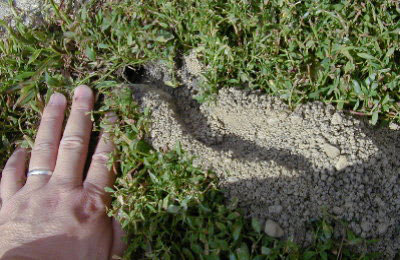
A pile of soil is typically found at the entrance of the burrow made by Cicada Killers. As much as 100 cubic inches of soil is brought to the surface as they make the tunnels/burrows.
A female will dig a burrow that can be up to 10 inches deep and extend another 6 inches horizontally. The female Cicada Killers hunt for cicadas on the lower limbs of trees and tree trunks. The female will sting it and carry or drag it to the burrow.
Do Cicada Killers Sting?
The female Cicada Killer Wasp is equipped to sting and eject venom into cicadas to feed them to their larvae.
They will only sting if caught in clothing are caught by your bare hands. They are content with simply digging their holes and hunting for cicadas.
The male Cicada Killers are smaller and will aggressively defend their territory from other intruding males.
- A few days to a couple of weeks, the female Cicada Killer will drag the paralyzed cicadas. The larvae will consume the live cicadas.
- A burrow may have up to 20 cells with 1-2 cicadas and one egg per cell.
- The egg hatches into larvae to feed on the Cicada.
- The larvae spin a cocoon afterward and enter a dormancy through the winter(overwinter) and pupate the following spring.
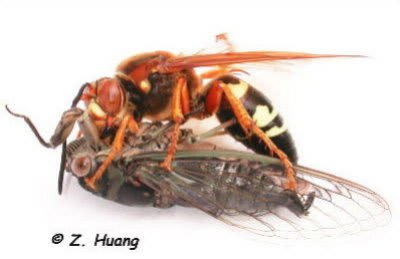
Key Takeaway
Adults will be gone in a few weeks. Focus treatment on the soil in and around the burrows to eliminate the larvae.
Recommended Insecticides
- If you notice new holes or a developing nest, you can try applying Tempo Dust to the holes' entrance. When the holes are new, you still have the potential to kill the larvae and adults.
- A more permanent and preventative method would be to apply Bifen LP Granules over the whole area and water it. The Bifen LP Granules would not yield immediate results but stop them from returning the following year.
Get Rid of Cicada Killer Wasps
Cicada Killer Prevention
Mechanical Prevention
Since Cicada Killer Wasps prefer digging to create their nests in bare soil or areas with thin sparse vegetation, maintaining the health and vigor of the turf can be a very important factor in discouraging their nest building.
Insecticidal Prevention
An effective preventative method is to apply Bifen LP Granules over the area where the nests are being dug, and water them in. The Bifen LP Granules do not yield immediate results but by killing the Cicada Killer Wasp larvae, stop them from returning the following year.
Written by our resident pest control expert Ken Martin.

